Search Results
Showing results 1 to 20 of 25

Soap Bubble Shapes
Source Institutions
Learners explore three-dimensional geometric frames including cubes and tetrahedrons, as they create bubble wands with pipe cleaners and drinking straws.
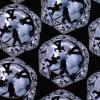
Spherical Reflections
Source Institutions
In this art meets science activity, learners pack silver, ball-shaped ornaments in a single layer in a box to create an array of spherical reflectors.
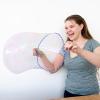
Bubble Tray
Source Institutions
In this activity, learners use simple materials to create giant bubbles.
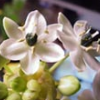
Film Canister Farming
Source Institutions
In this hands-on botany activity, learners sprout vegetables in film canisters.
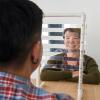
Your Father's Nose
Source Institutions
In this fun optics activity, learners explore principles of light, reflection (mirrors), and perception. Learners work in pairs and sit on opposite sides of a "two-way" mirror.
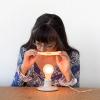
Pinhole Magnifier
Source Institutions
In this activity related to light and perception, learners use a pinhole in an index card as a magnifying glass to help their eye focus on a nearby object.
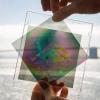
Polarized Light Mosaic
Source Institutions
In this activity, learners use transparent tape and polarizing material to create and project beautifully colored patterns reminiscent of abstract or geometric stained glass windows--no glass required
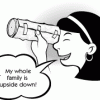
Pringles Pinhole Camera
Source Institutions
An ordinary camera has a lens that makes an image on film. In a pinhole camera, a small hole replaces the lens.
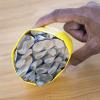
Pixel Tube
Source Institutions
In this STEAM activity, learners create a "pixel tube" to explore reflections of light and color mixing.
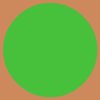
Mix-N-Match Light
Source Institutions
This is an online exhibit about color perception. Learners set a random background color and then try to mix red, blue, and green light to match.
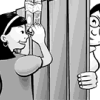
Up Periscope!
Source Institutions
This activity provides instructions for building a mirrored tube--a smaller and simpler version of a submarine's periscope--that lets you see around corners and over walls.
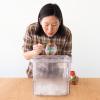
Bubble Suspension
Source Institutions
In this activity, learners observe as soap bubbles float on a cushion of carbon dioxide gas. Learners blow bubbles into an aquarium filled with a slab of dry ice.
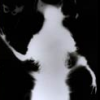
Self-Portrait Silhouettes: Activity 2
Source Institutions
In this activity, learners make a photographic image—without a camera!
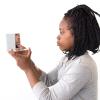
Corner Reflector
Source Institutions
In this optics/mathematics activity, learners use two hinged mirrors to create a kaleidoscope that shows multiple images of an object.
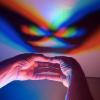
Colored Shadows
Source Institutions
In this optics activity, learners discover that not all shadows are black. Learners explore human color perception by using colored lights to make additive color mixtures.
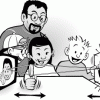
Pictures From Light
Source Institutions
Did you know that using a lens one can bend light to make pictures of the world? It's true!
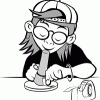
Bubbularium: See the Colors in Bubbles
Source Institutions
With little more than a flashlight, a straw, and a plastic lid, make an observatory so you can see the amazing colors in bubbles.
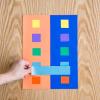
Color Contrast
Source Institutions
Do you have a hard time matching paint swatches with your furniture? When you consider human perception, color is context dependent.
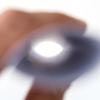
Circles or Ovals?
Source Institutions
This science activity demonstrates the dominant eye phenomena. What does your brain do when it sees two images that conflict?
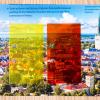
Color Table: Color your perception
Source Institutions
Look at pictures through different color filters and you'll see them in a new way. People have used color filters in beautiful photography or sending secret messages.
